A new study was released in the Lancet: Global Health the other day with the media picking up on the main finding that there are tangible, long-term benefits to breastfeeding. Of course, the Internet being the Internet and some moms being some of the most delicate flowers around, there was the uproar of “How dare you judge me for using formula!” proceeded by attacks on the research (some by those who didn’t even read the article), with people claiming it couldn’t possibly be able to make the types of conclusions it did.
Here I’d like to offer just a brief overview of the research and then address some of the specific questions and comments I’ve seen in response to this research (perhaps paraphrased to cover the individual differences in complaints and confusion). I won’t go into too much detail on the study as it’s not only been widely disseminated, but it’s an open-access journal which means you can all go read the thing in full here. Instead of repeating what others have, I thought it best to actually tackle the responses to the study.
Study Summary
What did these researchers do? In brief, they managed to recruit 5914 mothers and their newborns in 1982 through daily visits to five urban hospitals in Pelotas, Brazil. These mothers were interviewed shortly after birth and the cohort was followed for years, 30 years being the last check-in. Feeding was assessed at 19 months for the vast majority of cases, but at 42 months for the 5% that weren’t available for the 19-month follow-up. At the 30-year follow-up, 68% of the sample was available and assessed, for a total of 3701 individuals. The data for the study was based on these 3701 individuals and measures of IQ, income, and educational attainment were the main outcome variables. Of note, multiple possible confounds were assessed at all relevant time points, so, for example, the researchers had access to parental education and socio-economic status, ethnicity (measured using genome sequencing), and so on.
What did these researchers find? In short, they found that breastfeeding was linearly or monotonically related to IQ, education, and income. This relationship existed both without consideration of confounds and with confounds included in the analysis. They analyzed this for any breastfeeding by duration and also predominant breastfeeding by duration. There were no exclusive breastfeeding analyses as that was highly unusual at the time and thus the sample would have been too small to afford any meaningful analyses (so yes, the research is relevant for mixed feeders, but doesn’t provide any information on exclusive breastfeeding). That’s it. The findings in a nutshell and a reminder that you can read the entire thing here.
The Questions and Comments
Although one might read this and think it’s pretty straightforward, apparently it is not. Some of the questions and comments imply a misunderstanding of how science works and some reflect defensiveness in the face of information people would prefer not to hear, but they all deserve some type of answer which I hope to provide herein.
C: “The research was done in Brazil and so it doesn’t apply elsewhere.”
Actually, the fact that it was done in Brazil is a strength to the study. The reason being is that at the time this cohort was selected (1982), in more affluent and developed nations breastfeeding was stratified along socio-economic standing (as it is today). That means that the wealthier were more likely to breastfeed and so long-term outcomes become hard to disentangle from the effects of socio-economic factors. However, this was not the case in Brazil in the early 1980s. In fact, when the rates for breastfeeding are examined by education or income, we see that they are fairly stable (hovering around 30% with a slight bump in rates for the highest years and income, but the difference in the extremes still remained only 9-10%, as reported by the researchers). We simply don’t have that type of stability across socio-economic lines in North America or other developed, Western nations so this is a huge strength to the study.
Q: “If they only have 68% of the sample, isn’t that a type of self-selection bias?”
Yes, there are factors that may influence whether or not someone continues on with research and sometimes those factors can interact with the results. In this particular case, those who took part in the 30-year follow-up were more likely to be female and of an intermediate socioeconomic category. As the researchers point out, however, the magnitude of differences was very small.
On the flipside, however, a retention rate of 68% after 30 years is incredible. As such, there can really be no complaints on the recruitment methodology.
C: “They can’t PROVE this at all so why all the fuss?”
You’re absolutely right that the researchers cannot PROVE that giving a child breast milk at all or for a longer duration will definitely increase their IQ by the stated 4 points, or their education by just under a year, or income by 33%. No, there are tons of other factors that influence all of this. What the data shows, though, is the likelihood that a particular outcome will be evident given a child was breastfed versus not and over a particular time period, after controlling for all sorts of other variables like socio-economic status (SES), type of delivery, birthweight, and more.
If you still are waiting for a study to PROVE breastfeeding is associated with better outcomes, then you should also be waiting for a study to PROVE smoking can cause cancer. In terms of research and data, they are pretty much the same thing. We cannot PROVE smoking causes cancer, what we have to work with is a wealth of data showing an association and plausible hypotheses as to the mechanisms behind it. The primary link herein was to IQ (which was the mediator for income and was moderately correlated with education) and we too have a wealth of information suggesting a link between IQ and breastfeeding and plausible mechanisms (see here for more information). So unless you’re ready to argue that smoking doesn’t cause cancer, let’s just put this one to bed, shall we?
C: “They can’t prove it was due to breast milk. It could be due to bonding, attachment, or other factors that are also associated with breastfeeding.”
This is true, the authors do not know the exact mechanism behind the findings. They acknowledge as much in the article itself. HOWEVER, as they also acknowledge, right now the best evidence we have suggests a biological explanation in which the components of breast milk directly influence neural development and thus IQ. More research is needed, of course, but playing the odds would support the actual role of breast milk in these outcomes and not a third variable, like bonding or attachment.
Q: “The IQ difference is only 4 points and I’ve heard elsewhere that’s not big. In fact, it’s within a margin of error so what’s the big deal?”
First let me explain the notion of “margin of error” for anyone who doesn’t know. The margin of error is a range of scores that would all reflect the same score and deviations simply reflect measurement error. For example, if I give you an IQ test and you score 110, the next time you’re tested you may score 105 and that would be fine. You didn’t get dumber, but rather there are fluctuations that vary based on testing, the test, and other situations.
This question focuses on the notion that the mean difference between groups is 4 points (actually 3.76 to be exact, after controlling for confounds) and for an individual test on one person, this would fall into the margin of error and so we couldn’t say, for an individual, that there are any differences. However, when we analyze results across groups of people, the margin of error decreases significantly, and thus anyone claiming that the value falls within the margin of error clearly does not understand statistics. The reason it doesn’t fall in the margin of error is because the scores aren’t based on one test for one person, but rather the number of tests conducted on the group. Imagine if the same person took 20 IQ tests and we took an average. We would expect that average to have far less error than a single reading because error can result in numbers too high and too low and this repeated measurement means all of these types of error are included, getting us closer to the “real” value.
In this case, the average scores are based on numbers in the hundreds or thousands (depending on the group) and this lowers the error. This means the 4 point difference is actually highly significant as it represents consistent differences between groups of individuals (based on breastfeeding). Because error follows the normal distribution, we have no reason to believe that error would cause these differences. Of note, this difference is nearly identical to the one found in a meta-analysis of long-term breastfeeding outcomes that amalgamated data from multiple sources (see here) so the 4 points seems to be a pretty steady number.
The question becomes: What does 4 points mean? To put it in perspective, the authors herein point out that research from the USA found that each 1-point increase in IQ results in a 1.8-2.4% increase in lifetime earnings and that research from the UK found a 2-point increase would raise lifetime earnings by £35,000-£72,000. As I’ve pointed out elsewhere, this 4-point difference can also reflect rather large differences in terms of percentiles (relevant when it comes to applying to university). Not exactly trivial, is it?
Q: “Okay, if everyone breastfeeds, then everyone goes up so don’t you still have the ‘haves’ and ‘have nots’?”
This question is interesting because it presupposes that we must have a contrast with respect to breastfeeding instead of acknowledging that breastfeeding is simply one component that influences outcomes. Yes, in order to state the “benefits” of breastfeeding (or really, the “risks” of formula), we need a comparison group. If we don’t have that, we simply can’t be talking about any of this. That, however, is completely unrelated to the findings and the question of what we would have if everyone breastfed.
What we would have if everyone breastfed for a significant amount of time is a society in which everyone is reaching their potential associated with breastfeeding. There would still be “haves” and “have nots” because there are many other factors that influence our outcomes and breastfeeding alone is not a panacea. Many of these issues would still exist, but it would still give everyone a bit of a foot up. Is that such a bad thing?
C: “What about the fact that formula has changed dramatically over the last 30 years?”
This is probably the best counter-point I’ve heard because it’s true, formula has changed a lot. Thanks to research like this, there has been a lot of focus on improving formula, trying to make it mimic breast milk (trying being the operative word, they have not been successful). However, even to date, there is a vast difference in what is in breast milk and what is in formula, and in particular the mechanisms hypothesized to be at play in the breastfeeding-IQ link are not ones that are readily available in formula (see here for information).
More recent research on the health implications of the use of formula, such as the randomized trial of breastfeeding support in Belarus, has shown that there are significant health and well-being outcomes to the use of formula/breastfeeding (bad or good depending on how you frame it), suggesting that even modern-day formula is not the same as breast milk. You can check out this ingredient list to see exactly how different even modern-day formula is and why there may be a lesser degree of difference (I honestly don’t know) but that the difference is still very likely present:
C: “I formula fed my babies and they are super bright so clearly breastfeeding does not result in any IQ difference.”
There is no doubt there are very highly intelligent formula fed babies. However, this isn’t what the research is saying and personal experiences or anecdotes don’t negate research. I have already written on this problem (of a lack of understanding research and statistics) in depth so all I can do is recommend you read the piece I have written here.
Q: “Did they look at siblings? What about other family confounds?”
They did not look at siblings, but did include other family-level variables. The sibling issue is on everyone’s mind after a recent study claimed that family-level variables were responsible for the differences seen in formula and breastfed babies, including with IQ. This particular study was interesting in idea, but poorly executed with many flaws that made the results pretty inconclusive (you can read up about it here). However, it did highlight the need for more sibling research of higher quality and I hope there are researchers taking that call to heart.
The research herein, as mentioned, did include other family-level variables such as SES, parental education, family income at birth, household score, genomic ancestry, maternal smoking during pregnancy, maternal age, type of delivery, maternal pre-pregnancy BMI, gestational age, and birthweight. On top of the fact that breastfeeding did not fall along socioeconomic lines, all of these variables were considered in the analyses.
You may wonder about what researchers call “residual confounding” which is when we’ve accounted for everything, but there’s still some type of distortion in the data due to relevant confounds (like how SES may still influence findings even after controlling for SES as we’ve measured it in the research). The researchers discuss this and point out that the patterns they obtain when controlling for these confounds suggests that there isn’t residual confounding, which is reassuring. Of course they cannot say with certainty because unless they are accounting for 100% of the variance, it very well may be in play, but there is no reason to suspect that this is of concern in these analyses. In short, although siblings were not analyzed (it would have been nearly impossible given the breadth and depth of this study already), the authors did a commendable job of controlling for as many possible confounds as they could be expected to.
C: “All this does is serve to shame mothers who couldn’t or didn’t breastfeed.”
I felt the need to include this because of course it’s what “the Internet” jumps on. Folks, if you believe that science is out to shame you, you have serious self-esteem problems that I recommend you work on. If you are angry that well-conducted research is actually getting some traction in the media because you gave up on breastfeeding and now you feel guilt about it, you need to get over yourself. It ain’t just your world.
Breast milk is better than formula.
There is no “but”, it just is. What you do with that information is up to you, but that information is not shaming you. You may say, “I don’t care, formula is still better for my family” in which case you will hopefully carry on with your life without feeling shame or guilt and allow the flow of information to continue so other families can make the decisions that best reflect their family needs and values. You may say, “I am one of the very few who physically couldn’t breastfeed” in which case you should take this information and decide how you will apply it in terms of alternative infant feeding. You may say, “I know, but breastfeeding is so hard for reason X, Y, or Z” in which case you need to truly weigh how much you value this difference (between breast milk and formula) and either do all you can to breastfeed (exclusively or mixed) or move into the first group and own your decision to ignore this information and not breastfeed.
Women overcome obstacles all the time, especially in the name of child well-being. Will various societal influences make it more or less hard to achieve breastfeeding success? Absolutely, but they do not dictate outcomes, you do. This is why we see women who formula fed a first child learn from the experience and breastfeed their second despite being in nearly similar circumstances. Or why we see two women in the same situations where one gives up and one perseveres. We matter, especially in how we respond to the road blocks in our way to breastfeeding success.
To run into few or no road blocks is a privilege that not all women have, but should have. Women should not have to fight the odds to succeed, even though they are capable enough of doing this (something too many women don’t realize about themselves which is sad and I hope it changes). What we all need to do is go out and fight to change the system that creates these road blocks so that other women have a clearer road to obtaining breastfeeding success or better access to breast milk alternatives if breastfeeding is closed to them.
At no point is trying to shut down the dissemination of information by calling it “mean” or “shaming” or whatever ridiculous terms you use to try and shut down scientific discussion. It is juvenile and condescending to everyone involved in parenting and scientific discourse. Put simply: If you don’t like what science is telling you about your life, it’s up to you to change, not science.
***
If you are in need of individualized parenting help, I offer services via email, Skype, and phone on a variety of parenting topics. You can find out more here.

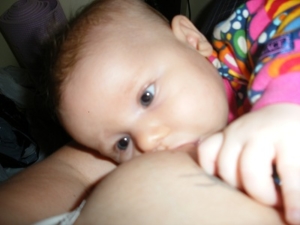
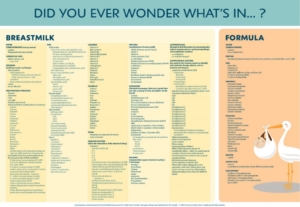

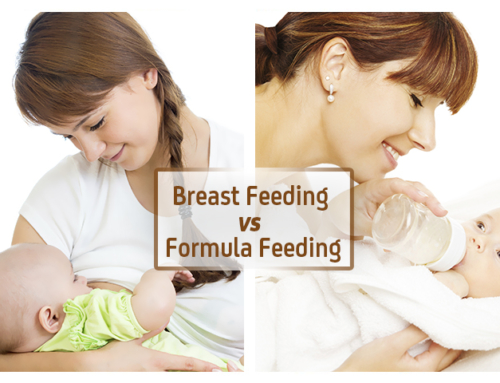

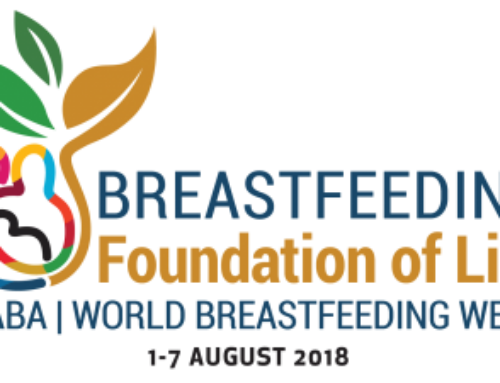
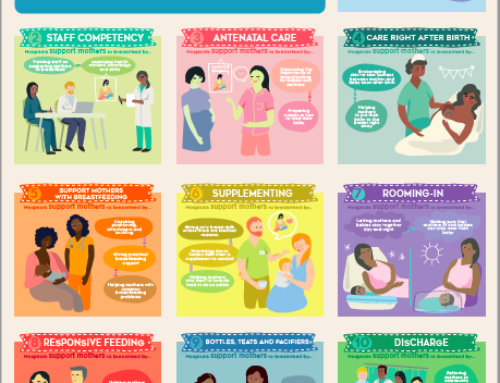
well said! Like the article said, let’s fight the system that puts up these road blocks!
breastfeeding is the biological normal way to feed a baby, it actually results in normal IQ and normal development, normal immune response / development. This excerpt from the Womanly Art of Breastfeeding explains breastfeeding research quite well:
How Reliable Is Breastfeeding Research?
You’ve probably heard that breastfeeding reduces the risk of infection and a bunch of childhood and adult illnesses and diseases, that it reduces the risk of allergy, and that it even raises IQ. But (are you sitting down?) none of it is true! Here’s why: Let’s say we’re testing a
Considering that breastfeeding is the biological normal way to feed a baby, it actually results in normal IQ and normal development, normal immune response / development. This excerpt from the Womanly Art of Breastfeeding explains breastfeeding research quite well:How Reliable Is Breastfeeding Research? You’ve probably heard that breastfeeding reduces the risk of infection and a bunch of childhood and adult illnesses and diseases, that it reduces the risk of allergy, and that it even raises IQ. But (are you sitting down?) none of it is true! Here’s why: Let’s say we’re testing a new drug. We on the people get the drug, with a group of ordinary people to compare them with. That’s how we know what the drug did. It made things better or worse than normal. Accurate science focuses on the experiment, not the normal thing. Now think about most of the research on breastfeeding. Exactly—it’s research on breastfeeding! And that means that virtually all our recent research was done backward, evaluating what’s normal (breastfeeding) instead of evaluating the experiment (formula). It makes the high rates of formula-fed illness seem like normal baby health and breastfeeding seem like bonus points. Breastfeeding doesn’t reduce the risk of infection, illness, and disease. It doesn’t add IQ points. Breastfeeding results in normal good health and normal IQ. When babies aren’t breastfed—and this is using the same information from the same studies, just shifting the focus to the true experimental group—they are at increased risk for all those short-term and long-term illnesses and diseases. Researchers have inadvertently hidden formula problems from us by focusing on the apparently fabulous “benefits” of human milk and breastfeeding, almost as if breastfeeding is a nice but unnecessary “extra.” That’s starting to change. More and more research articles are using the normal breastfed baby as the starting point, as good science requires, and are looking at what happens to babies when their normal system is altered.It can be a scary way for the public to look at infant feeding—to see a list of risks instead of a list of “benefits.” But it’s a more honest, accurate approach, and it’s the one we’ve used. Breastfeeding doesn’t give you brownie points. It’s simply the normal way to raise a baby.
Gosh I love this! Keep up the good work!
Thank you 🙂
Very eloquent! I felt it was very gender neutral, well put and thank you 🙂
After the poop storm I created on Facebook by encouraging people to read your articles on sleep training science fades, I am going to simply post your last few sentences. I am so disheartened by our general poor scientific literacy. I am so appreciative of your efforts to wade through the studies and present the findings in the context of the actual research performed and in the context of science in general. As I wrote to try to peacefully redirect the poop storm, how wonderful it would be if we could use this science to better inform parents AND their support networks to reduce the number of sad, desperate parents and babies in future.
Another great article. Just finished reading the study and it was worth every single minute!
I nursed my baby for almost 4 years. The results in his health are incredible. His jaw and mouth are wide and formed correctly, his teeth just perfect and gorgeous, his hair and skin amazing, strong as an ox, visual acuity; he misses nothing! whereas my mom shortchanged me by bottle feeding and very little nursing and I have a “narrow palette” according to orthodontist and now TMJ. I also had constant pounding ear infections as a kid and all the way into teens, It was a nightmare that I do not want him to go through. My son has never had one ear infection, almost never sick and when we caught the flu when he was 2, myself and husband were hit hard, but he was IMMUNE to the flu because by nursing him I actually protected him from even getting it! and no, we do not do any vaccines! I have evidence that vaccines HARM the immune system with LONG TERM damage. I exclusively nursed him on demand for the first 12 months (no other foods or liquids) and then continue to nurse on demand for almost 4 years with a healthy vegan diet. We also are still cosleeping, he is now five and baby #2 is on the way, I am 45 years old, pregnant naturally both times in just a few months of trying. First baby at age 40. Myself and husband are also all vegan for over 15 years on an organic, mostly raw, all vegan diet.
It was blissful to raise mys son this way, to be always holding him and nursing him whenever he wanted (I am a stay at home mom). I carried him with me everywhere. I think daycare is TERRIBLE, and full of sickness which I am glad he was not subject to. The rewards I got for my dedication to him were the most healthy happy baby ever. He sleeps soundly, so I never had sleep issues. I look forward to the same bliss with baby #2. It just saddens me when I see a baby not getting these basic needs met. I have a high IQ of 156, sure some of it is genetic but I credit the vegan diet for causing my IQ to go from 123 when I was 20 to 156 at 30. It’s probably even higher now at age 45. Oh and he was born naturally in 4 hours in a birth center and I am having baby #2 in a birth center too, currently I am 28 weeks pregnant 🙂
Thank you. It is so refreshing to hear someone else say this. I have been accused of shaming etc for suggesting that we should be talking about the risks of formula feeding not the benefits of breastfeeding. It is both perplexing and infuriating to realize the extend to which this topic causes otherwise intelligent and rational people to deny science and logic.
Science doesn’t care if you are offended. We are mammals. It is as simple as that
Your work is empowering other “evolutionary” parents like myself to stand up and spread the word: Breast milk is not only best, it is the biological norm.